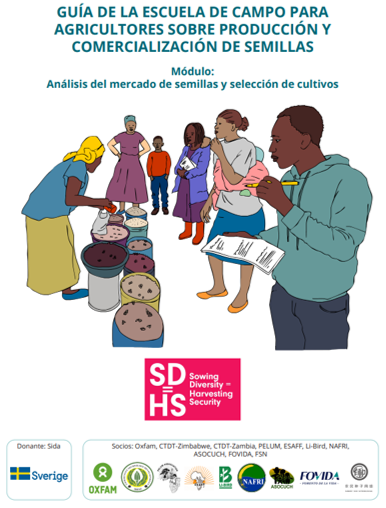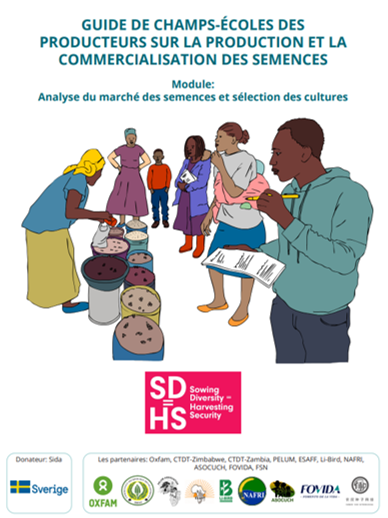This module has been designed to help facilitators to undertake Farmer Field School (FFS) end-of-cycle evaluations at FFS level.
During the end-of-cycle evaluation at FFS-level, facilitators and farmers will reflect on the lessons learned, developments, challenges and problems related to the content of the FFS work and functioning of the FFS group. They will assess the efficiency and usefulness of the FFS activities and Field Guide, and the impact of the FFS work. They will also evaluate to what extent the FFS activities are responding to the problems and priorities identified by farmers (including men, women and youth) during the diagnosis. Finally, they will reflect on the external collaborations and the role of the facilitator.
It is necessary that FFS facilitators and farmers see where they are, and what they have achieved, in order to improve the FFS performance and tools, successfully achieve the FFS objectives, ensure a truly empowering and participatory action learning experience, and – ultimately – achieve the objectives of the work on nutrition and local food plants.
The end-of-cycle evaluation is basically a venue wherein the FFS members look back on how the FFS activities were implemented building on the observations made in every session, under the guidance of the FFS facilitator. However, evaluation and reflection are an on-going process. For instance, facilitators together with farmers should plan every session on the basis of the evaluation of the previous one.
The contents of this document expand on the information on FFS evaluation present in the chapter 8.8 of the Field Guide. The FFS evaluation has also been briefly summarized in module 5 of the Online Course on nutrition and local food plants. Finally, the Gender Journey Module, is an optional tool that provides some guidance to evaluate gender equality and inclusion as part of the FFS work.









